Class of 2022
McCombs welcomes eight new research faculty members
Eight research faculty members joined Texas McCombs during fall 2022, with interests that range from organizational concerns like culture and ethics to social issues such as housing, race, and the environment. In their roles as researchers at the school, they plan to conduct studies that build on their past findings and branch out to meet new industry needs.

Doug Chung, Associate Professor of Marketing
Associate Professor of Marketing Doug Chung arrived at McCombs after 10 years at the Harvard Business School, as well as being a visiting scholar at MIT. His research focuses on business and sales strategy, sales force management, and incentive compensation plans.
In one recent paper, Chung compared the effects of a single long-term sales target versus a series of smaller short-term targets. He gathered data from a Swedish retailer as it switched part of its staff from a monthly sales quota to daily quotas.
Daily quotas, he found, lowered overall sales volume and profitability. Compared with monthly quotas, they boosted sales of low-priced items but reduced sales of high-priced merchandise.
Chung puts such findings to practical uses. As an adviser for McKinsey & Co., he develops sales incentive compensation systems for companies around the world.
“I like to disseminate my academic findings on how to motivate salespeople and see how they can potentially help practitioners, companies, and organizations,” Chung says.
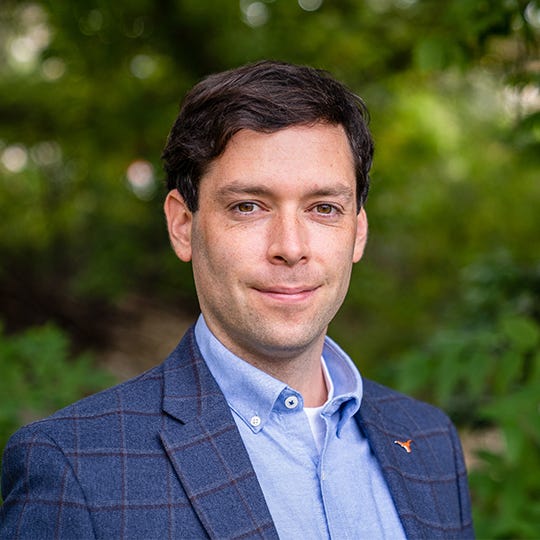
Zachary Kowaleski, Assistant Professor of Accounting
Zach Kowaleski, assistant professor of accounting, has seen his profession from multiple angles. Before getting a doctorate from the University of Wisconsin-Madison and teaching at the University of Notre Dame, he was an auditor with PwC and a researcher with the Public Company Accounting Oversight Board, a regulatory group.
Kowaleski’s research looks at how institutional settings influence behavior, particularly settings in which economic incentives conflict with moral and professional expectations. Several of his papers examine ethical issues among auditors and broker-dealers.
In one study, Kowaleski measured the impact of professional ethics training on the behavior of investment advisers. Those who got more intensive training were 25% less likely to commit misconduct than those who didn’t, he found. They were also more likely to leave businesses that experienced scandals.
“There are many people who say that ethics courses are a pointless exercise, that beliefs are formed outside the classroom,” Kowaleski says. “We provide the first large-scale evidence that ethics training improves the behavior of working professionals.”
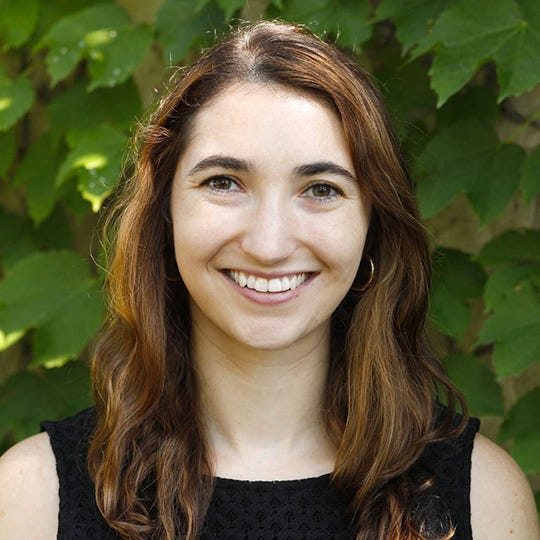
Annabelle Roberts, Assistant Professor of Marketing
A behavioral scientist who observes consumers, Assistant Professor of Marketing Annabelle Roberts received a doctorate from the University of Chicago’s Booth School of Business.
Roberts researches social decision-making, such as factors that encourage people to trust strangers, or ways to talk about success without being perceived as bragging. She’s particularly interested in the phenomenon of patience: what causes consumers to exercise self-control, and what feelings they experience while they’re waiting.
In one series of studies, she found that levels of impatience rose as subjects got closer to the end of a waiting period. The settings were as diverse as waiting for the results of the 2020 presidential election and waiting for a package to arrive.
“They have a stronger desire for closure as they get closer to the end,” Roberts says. “Even though people are closer to getting what they want, they feel worse, because they’re more eager to get this thing over with.”
Roberts says she hopes her findings can help improve the design of waiting periods so consumers feel better while they’re waiting and evaluate the product or service more positively.
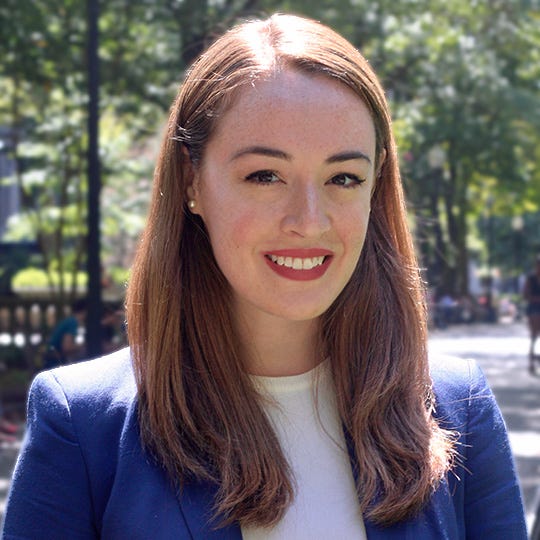
Caitlin Gorback, Assistant Professor of Finance
Location is the foundation of real estate and a key research topic for Caitlin Gorback, assistant professor of finance. After earning a doctorate in applied economics from the Wharton School at the University of Pennsylvania, she did postdoctoral work at the National Bureau of Economic Research.
Gorback’s field is urban economics, concentrating on transportation, housing markets, and the interplay between them. In one NBER paper, she looked at how effective stay-at-home orders were at reducing COVID-19 infections. In five U.S. cities, she found that every 10% decrease in mobility resulted in a 30% drop in new cases two weeks later.
Her dissertation examined the consequences of ride-sharing services for new houses and business. In the 32 largest U.S. cities, she found that Uber’s entry made certain ZIP codes more accessible. Those ZIP codes saw 10% more restaurant growth than the city as a whole and 4% higher appreciation in home values.
“A city is a collection of places and how we get to those places,” says Gorback. “It’s got a variety of locations, and those locations have value because of their access to other locations.”

Constantinos Coutifaris, Assistant Professor of Management
Before studying management in school, Assistant Professor of Management Constantinos Coutifaris spent a decade learning about it in practice at a succession of investment and private equity firms. Coutifaris comes to McCombs from the Wharton School, where he received a doctorate in management.
His work experience sparked an interest in organizational and team culture: how it shapes managers and workers, and how they’re shaped by it. He studies the reciprocal directions in which culture develops, from the top down and the bottom up.
“Over time, I recognized that organizational culture had a pervasive influence over employee affairs,” Coutifaris says. “I was so intrigued by culture that I decided to study it using data-driven approaches.”
In his latest paper, he explores how managers can encourage team members to feel safe giving feedback. The key, he finds, is for leaders to share criticisms they’ve already received from employees. When a leader shows vulnerability, it encourages others to do the same, with benefits for team performance, creativity, and outcomes.
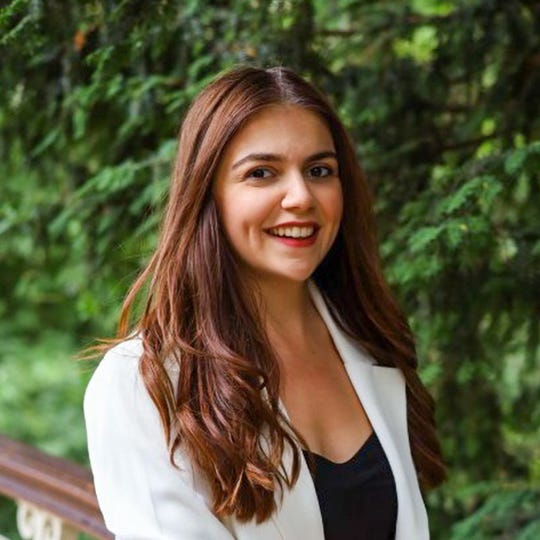
Gizem Yalcin, Assistant Professor of Marketing
Gizem Yalcin, assistant professor of marketing, arrived at McCombs from the Rotterdam School of Management at Erasmus University in the Netherlands, where she earned a doctorate.
Yalcin’s research explores consumer interactions with technology in forms such as artificial intelligence, algorithms, and robots. She also studies prosocial behavior such as how to motivate people toward acts of altruism.
In a recent paper, she examined how consumers react to decisions made about them by algorithms, as when applying for loans. She found that consumers felt more positive about being approved by a human than being approved by an algorithm.
But they didn’t feel any worse when an algorithm turned them down than when a human did the same. They didn’t take a machine’s rejection as a personal judgment, the study showed. The finding could help companies determine when to use and not to use algorithms, according to Yalcin.
“As AI technologies became more sophisticated, humans find themselves at a crossroads,” Yalcin says. “The very same technology can change what we think about ourselves and others, including organizations, and can even make us question our own existence.”
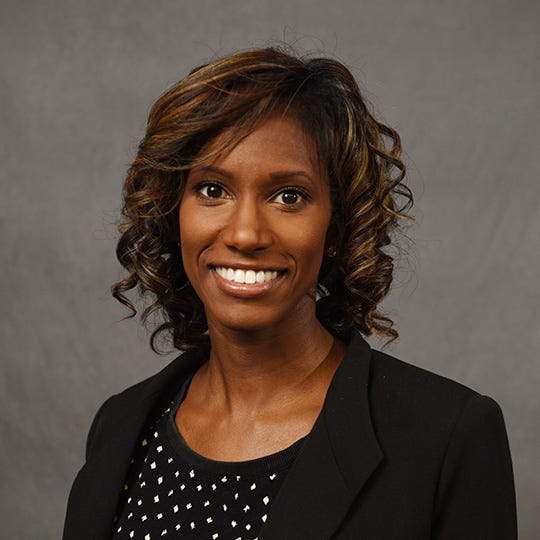
Rowena Crabbe, Assistant Professor of Marketing
Before joining McCombs, Assistant Professor of Marketing Rowena Crabbe earned a doctorate in sociology from the University of Chicago and taught at the Pamplin College of Business at Virginia Tech.
Her research interests include the roles of race, ethnicity, and other social categories of marginalized groups, and how they influence the world of business: companies, consumers, entrepreneurs, and markets.
The role of race and marginalized categories is becoming increasingly important to scholars and practitioners,” Crabbe says. “It is exciting that the conversation is starting to shift.”
In a paper being reviewed for publication, Crabbe analyzes public statements made by 159 companies after the murder of George Floyd in the summer of 2020. She identifies a wide variety of ideologies, with some statements stressing color-blindness, while others acknowledge racial injustices in society. She also finds a divide between focusing on individual versus institutional racism.
By understanding the ideological underpinnings of their public statements, she hopes that companies can better communicate the messages they intend, while avoiding miscommunications that might unintentionally alienate marginalized groups.

Nathan Barrymore, Assistant Professor of Business, Government, and Society
Environmental, social, and governance issues are the core interest for Nathan Barrymore, assistant professor of BGS who comes to McCombs after receiving a doctorate from the University of Maryland.
Barrymore’s research examines corporations’ strategies and decision-making around ESG and how they translate strategies into tangible outcomes — or not.
“With CEOs and institutional investors increasingly speaking out and making environmental and social commitments, it is an open question whether they’re making any substantive progress or whether this is empty talk,” says Barrymore.
In a working paper, he looks at how companies respond to stakeholder pressure for ESG policies. He shows that when managers drive ESG policies, they’re more likely to produce results, because the managers have personal interests at stake.
When ESG advocates are investors, by contrast, policies tend to be symbolic and produce fewer positive changes: a phenomenon sometimes called greenwashing. The lesson, Barrymore says, is that green investors should look beyond a company’s ESG ratings and gather information on its actual outcomes.
Story by Steve Brooks
About this Post
Share:


